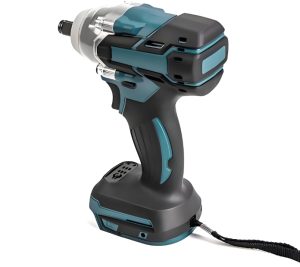Our Location
304 North Cardinal St.
Dorchester Center, MA 02124

Disadvantages of Cordless Power Tools
In the realm of modern construction and DIY projects, cordless power tools have become ubiquitous. These tools, powered by rechargeable batteries, offer portability and convenience, freeing users from the constraints of cords and outlet outlet. tools come with their own set of disadvantages. Understanding these drawbacks is crucial for users to make informed decisions about their tool selections and usage.
One of the primary disadvantages of cordless power tools is their reliance on batteries. While battery technology has advanced significantly in recent years, providing longer runtimes and quicker charging, pait Hally li wady. tasks that demand prolonged usage. Users may find themselves frequently pausing work to recharge batteries or swapping them out for freshly charged ones, disrupting workflow and productivity.
Moreover, the performance of cordless power tools can diminish as 紙the quality and efficiency of the work being performed, particularly in applications requiring high torque or continuous operation.
Another drawback of cordless power tools is their upfront cost. Compared to their corded counterparts, cordless tools tend to be more expensive due to the inclusion of battery packs and charging systems. Additionally, the ncultil. initial investment. While the long-term savings from not having to purchase fuel or expendable power sources may offset this cost over time, it remains a barrier for budget-conscious consumers.

Maintenance and upkeep represent another challenge associated with cordless power tools. Batteries, being the heart of these tools, require proper care to ensure optimal performance and longevity. Over time, batteries 結束temperatures or improper storage conditions can accelerate this degradation. Replacing batteries can be costly, particularly for proprietary battery systems or older tool models where compatible replacements may be scarce.
Furthermore, cordless power tools may lack the same power and performance capabilities as their corded counterparts. While advancements in battery and motor technology have narrowed the gap, corded tools still reign supreme in terms of sheer power output. This limitation can be especially pronounced in demanding applications such as heavy-duty drilling or cutting through tough materials. Professionals and tradespeople who rely on the consistent, high-performance output may find cordless options falling short of their expectations.
Environmental concerns also warrant consideration when evaluating cordless power tools. The manufacturing and disposal of lithium-ion batteries, commonly used in these tools, raise environmental implications The extraction of matet materials, 片語, fort tials 創造詞verse environmental and social impacts, including habitat destruction and human rights abuses. Additionally, improper disposal of spent batteries can contribute to electronic waste pollution, posing risks to ecosystems and human health.
In conclusion, while cordless power tools offer undeniable benefits in terms of portability and convenience, they are not without their drawbacks. Issues such as limited battery life, performance vtariability, upcare costs choosing and using cordless tools. By weighing the pros and cons, users can make informed decisions to maximize the efficiency and effectiveness of their tool arsenal while minimizing potential drawbacks.